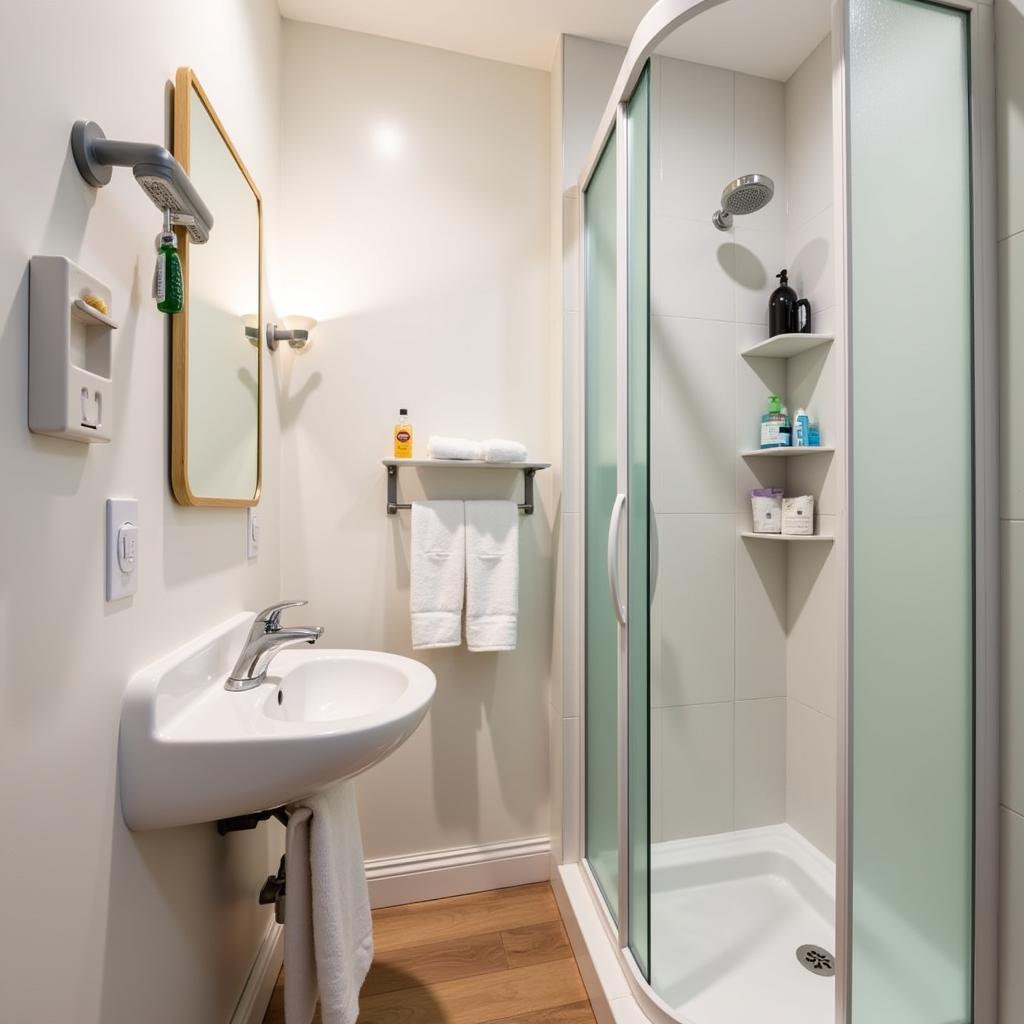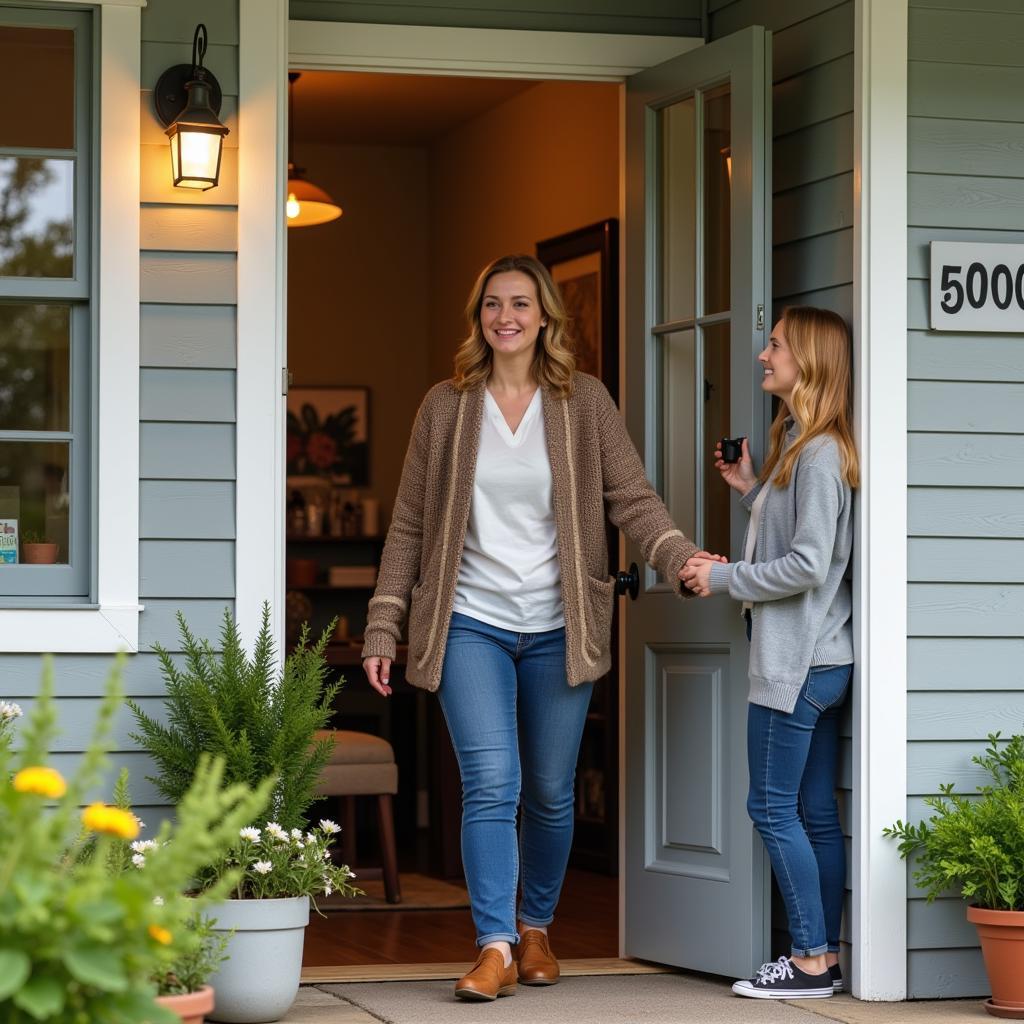California’s diverse landscape, vibrant culture, and bustling cities attract visitors from around the globe. For travelers seeking authentic experiences beyond hotels, homestays offer a unique opportunity to immerse themselves in local life. Understanding California Health And Safety Code Homestays is crucial for both hosts and guests to ensure a positive and legally compliant stay. This guide will navigate you through the key aspects of California’s regulations for homestays, empowering you to enjoy a safe and enriching experience.
Understanding California’s Homestay Regulations
California health and safety code homestays are defined as residential dwellings where a host rents out a portion of their primary residence to guests for short-term stays. These regulations are designed to protect both hosts and guests by establishing standards for safety, sanitation, and legal operation. Key aspects of these regulations include compliance with local zoning ordinances, fire safety regulations, and obtaining necessary permits. Adhering to these regulations ensures a harmonious relationship between hosts, guests, and the community.
Fire Safety and Homestays: Protecting Your Guests and Property
Fire safety is paramount in any dwelling, especially in homestays where unfamiliar guests navigate the space. California health and safety code homestays require hosts to install and maintain working smoke detectors on every level of the home, inside and outside sleeping areas. Clear escape routes should be readily accessible, free from obstructions, and clearly marked. Providing fire extinguishers and ensuring guests understand their location and operation is also crucial.
Zoning Ordinances and Permitting: Operating Your Homestay Legally
Operating a california health and safety code homestay often requires navigating local zoning ordinances and obtaining necessary permits. Regulations vary by city and county, addressing aspects such as the maximum number of guests allowed, parking requirements, and potential restrictions on short-term rentals. It’s crucial to research and comply with these specific regulations to avoid potential fines and legal issues. Contacting your local government office for detailed information is highly recommended.
Sanitation and Hygiene: Providing a Comfortable and Healthy Environment
Maintaining a clean and sanitary environment is vital for any california health and safety code homestay. Regular cleaning of common areas, bedrooms, and bathrooms is essential. Providing clean linens, towels, and essential toiletries ensures guest comfort. Proper waste disposal and pest control are also crucial for maintaining a healthy and welcoming atmosphere.
 Clean and Hygienic California Homestay Bathroom
Clean and Hygienic California Homestay Bathroom
Liability and Insurance: Protecting Yourself and Your Assets
Hosting guests involves inherent risks, making liability insurance a crucial aspect of operating a california health and safety code homestay. A comprehensive insurance policy protects you from potential financial losses arising from accidents, property damage, or liability claims. Reviewing your existing homeowner’s insurance policy and considering additional coverage specifically designed for homestays is essential.
Guest Communication and Expectations: Setting the Stage for a Positive Experience
Clear communication with guests before, during, and after their stay fosters a positive experience. Providing detailed information about house rules, amenities, and local attractions helps guests feel prepared and comfortable. Addressing guest inquiries promptly and professionally ensures a smooth and enjoyable stay for everyone.
 California Homestay Host Welcoming Guests
California Homestay Host Welcoming Guests
Conclusion
Understanding california health and safety code homestays is essential for creating a safe, legal, and enjoyable experience for both hosts and guests. By adhering to these regulations and prioritizing safety, sanitation, and clear communication, you can contribute to a thriving homestay community and foster positive cultural exchange within California’s vibrant landscape.
FAQ
- What is the maximum number of guests allowed in a California homestay? This varies by local ordinances.
- Do I need a permit to operate a homestay in California? It depends on your local regulations.
- What type of insurance do I need for a homestay? Consult with an insurance professional for specific advice.
- What are the fire safety requirements for California homestays? Smoke detectors, fire extinguishers, and clear escape routes are essential.
- How can I ensure a positive experience for my homestay guests? Clear communication and a welcoming environment are key.
- Where can I find more information on California homestay regulations? Contact your local government office.
- What are some common issues to address in my homestay house rules? Noise levels, quiet hours, and guest access areas.
Need support? Contact us at Phone Number: 0793157979, Email: [email protected] or visit our address: 73C6+XR, Trung Son, Viet Yen, Bac Giang, Vietnam. We have a 24/7 customer service team.